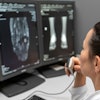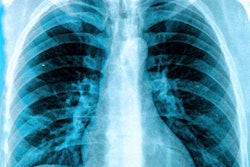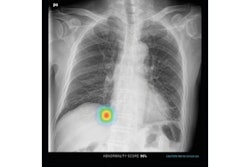Tuesday, November 30 | 9:30 a.m.-10:30 a.m. | SSCH04-2 | Room TBA
A deep-learning algorithm can enable significantly more accurate survival predictions in patients with chronic obstructive pulmonary disease (COPD), according to this study.Current grading systems for predicting COPD prognosis don't include radiological information and are impractical due to their need for complex history-taking or exercise tests, according to presenter Dr. Ju Gang Nam of Seoul National University Hospital in South Korea and colleagues.
As a result, they sought to train and validate a deep learning-based model for predicting COPD survival based on chest radiographs, as well as integrate its analysis with other clinical factors. The researchers then tested the algorithm's performance on three external validation cohorts from different institutions. Using only chest x-ray information, the algorithm served as a significant predictor for predicting five-year survival from COPD.
And when integrated with clinical factors such as age, body mass index, and forced expiratory volume in 1 second (FEV1), the combined radiographic and clinical model yielded comparable performance to four other complex COPD grading systems: Body-Mass Index, Obstruction, Dyspnea, Exercise (BODE); Age, Dyspnea, Obstruction (ADO); COPD Assessment Test (CAT); and St. George's Respiratory Questionnaire (SGRQ).
"By predicting life expectancy of patients with COPD using easily accessible image data and clinical factors, personalized management could be performed," the authors wrote.
Delve further into their results by sitting in on this talk on Tuesday morning.




















